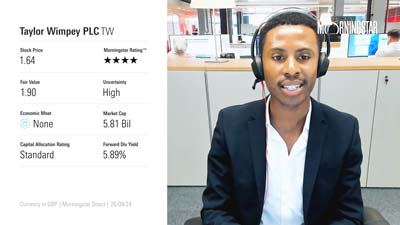
Currently in his 40s, Paul Hartley already has one eye on retirement. He is investing to achieve a better work/life balance and to make sure he isn’t still working into his 70s. Paul is acutely aware that many people his age “may never be able to retire in the traditional sense” and is keen to avoid that, particularly as he suffers from mental health problems.
Paul, who lives in Sheffield, started investing in his mid-20s. “Like a lot of young people, after leaving university I fell into the trap of easily available credit and debt,” he says. “Modern society seems to promote a consumerist lifestyle, where there is more emphasis on buying things than saving.”
Realising this was not the right path for him, Paul started reading and researching money and wealth – topics he had never studied at school. Finding himself drawn to investing, Paul makes use of the tax relief on money saved into pensions and has a self-invested personal pension (Sipp) with AJ Bell. He also puts money into an Isa and Premium Bonds. “I think of these as my ‘rainy day savings’ and tend to use them to save nearer-term purchases,” he adds.
I'm Taking a Cautious Approach
In these accounts, Paul invests in a mix of FTSE 100 shares as well as funds. While he used to be more “reckless” in the past, he has become a more cautious investor in recent years. “When I first started out, I thought I could get rich quick,” says Paul. “My mental health issues leave me with a tendency for self-destruction.”
So, while he used to take share tips from other people and invested in smaller companies and emerging green technologies, he tempered his approach after many of these investments went bust. These have been important lessons to learn, he says. “People love to tell you about their winners, but so many tips don’t deliver. It’s taught me to stay away from companies that aren’t profitable, because it doesn’t seem to matter what potential they have, most will run out of cash before the profits comes in and end up de-listing or going bankrupt.”
These days Paul tends to “range trade bank stocks”. These can deliver better returns, but with the safety net that they are unlikely ever to go bust completely, he says.
He has also tried to take a more cautious approach to his main Sipp holdings, choosing companies he believes will last for the long-term and balancing his portfolio between secure dividend-paying stocks as well as some more volatile options, which he is happy to hold for the long-term. He has also added a few funds to the mix, sticking to lower-risk options with “sensible” fees and a low portfolio turnover. To help with his choices, he uses AJ Bell’s recommended list and looks for funds that have been performing well.
Vodafone Has Been Volatile
Among his best performing shareholdings is telecoms giant Vodafone (VOD). One of the largest mobile phone companies in the world, and a recent Stock of the Week, the stock a four star rating from Morningstar, with its current share price (around 107.16p per share) trading well below its fair value estimate of 194p. Morningstar analysts ascribe the company a narrow moat but also a high uncertainty rating. They add the firm’s first quarter revenue was “very respectable given the hit caused by the pandemic”.
Morningstar analyst Michael Hodel says: “Vodafone has steadily transformed its business over the past several years, adding fixed-line assets in core markets, selling out of peripheral areas like New Zealand, and forming partnerships in others, including its troubled Indian venture.” He says the firm is still a work in progress, with integration in Germany now underway and plans to offload additional wireless towers in the works. Hodel adds: “Overall, we believe Vodafone holds a solid set of assets, with opportunities to grow cash flow and the potential to unlock additional value for shareholders.”
Paul says the investment has been volatile. Over 10 years the stock has delivered total annualised returns of 3.96% to shareholders, below the 4.79% they would have received investing in the FTSE 100.
Recent performance has been poor, however, and the shares have delivered negative annualised returns of 14.67% over the past three years, compared to annualised losses of 3.85% from the FTSE 100 over the same period.
Paul has used the recent market volatility as an opportunity to purchase what he believes are good quality FTSE 100 stocks at a cheaper price. “My strategy has remained fairly consistent over the last few years and although the current situation is trying, I am still trying to save as normal and see it as an opportunity to buy some good companies on the cheap.”



























